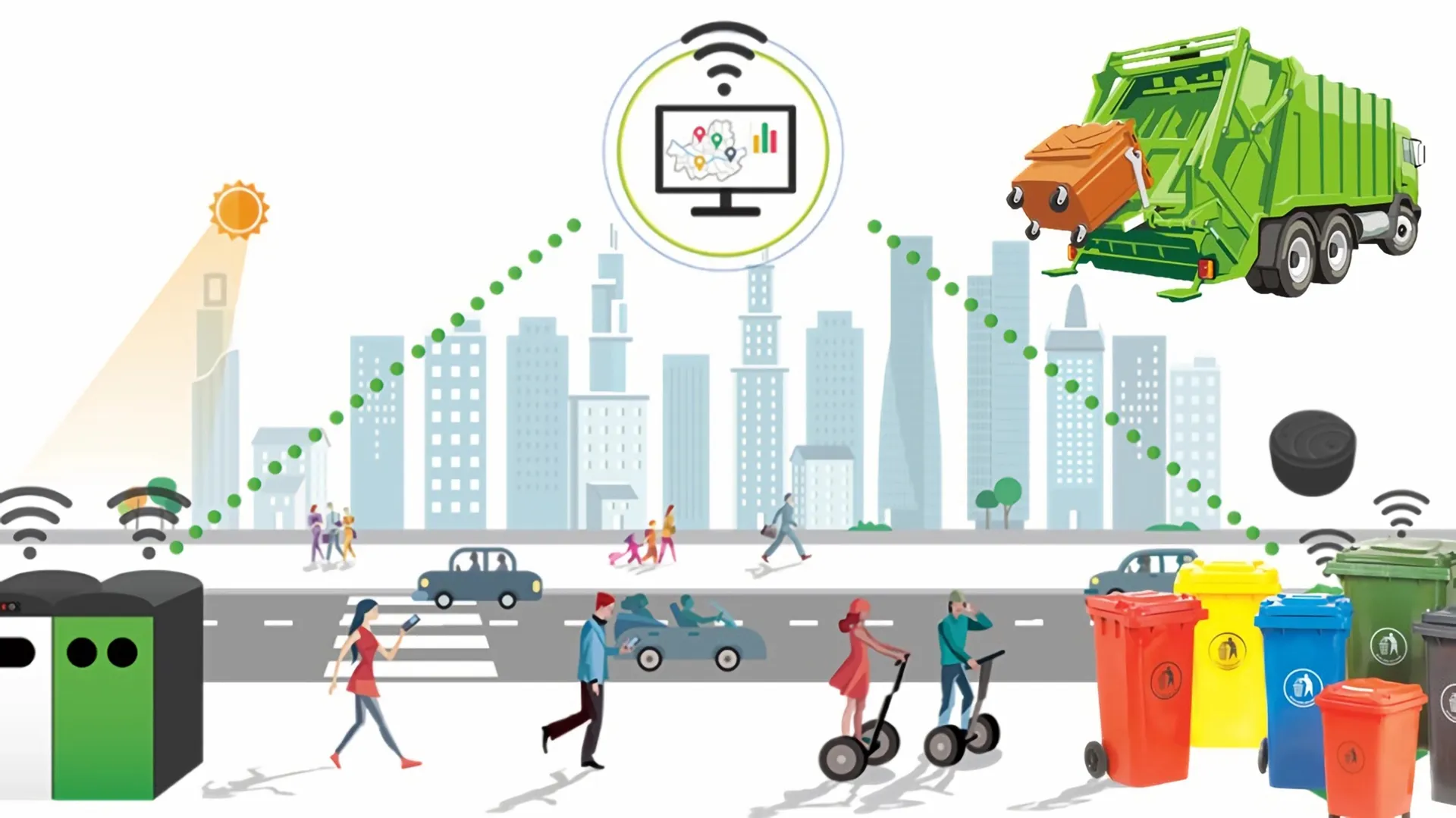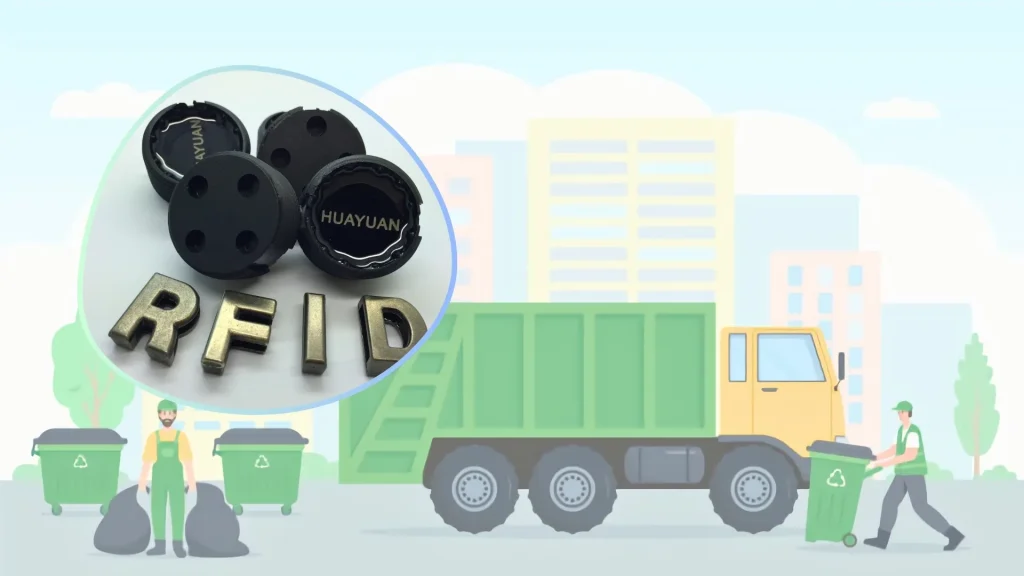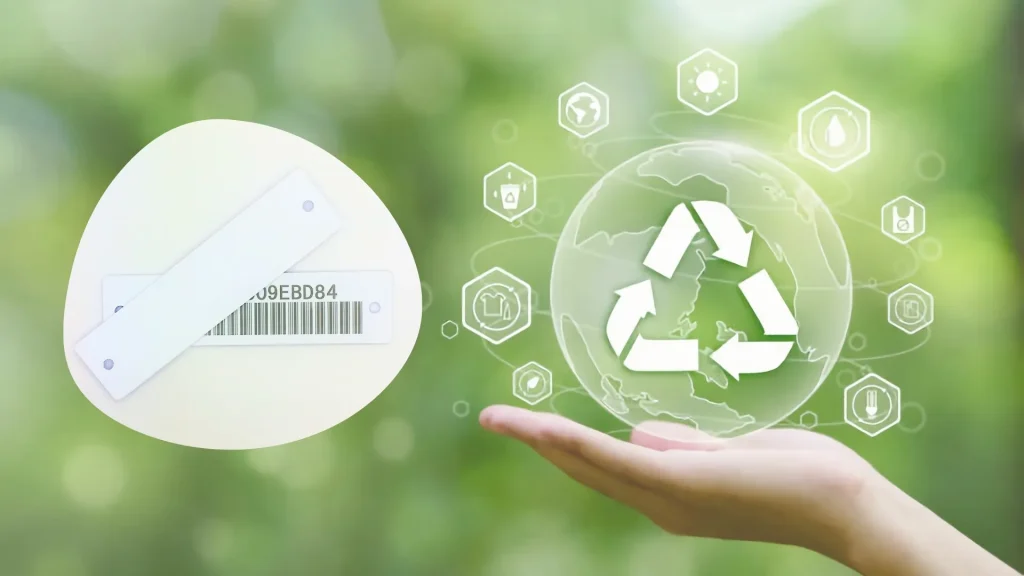RFID for Waste Management
Radio Frequency Identification (RFID) technology has found applications across diverse industries, including retail, laundry, and healthcare. In recent years, it has been increasingly adopted by councils, municipalities, and utility companies for waste management. This shift is driven by RFID’s capability to streamline processes, enhance operational efficiency, and facilitate comprehensive data collection.
Benefits of Waste Management with RFID Technology
Increased Efficiency: RFID enables real-time tracking of waste bins, which enhances the efficiency of waste collection. Optimizing collection routes reduces travel time and fuel consumption, leading to cost savings for waste management companies.
Improved Accountability: By tagging waste bins with RFID, companies can monitor the volume and types of waste produced by households and businesses. This data helps identify areas needing waste reduction programs and ensures proper waste disposal practices.
Better Recycling: RFID provides accurate information on the type and quantity of recyclable materials in waste streams, helping to improve recycling rates. This information allows companies to identify which materials are being recycled and adjust their recycling programs accordingly.
Reduced Theft: Real-time tracking of bin locations through RFID technology helps prevent theft of waste bins. This capability allows companies to quickly locate and recover stolen bins, reducing the need for expensive replacements.
Challenges of Tracking Waste with RFID Technology
High Cost: Implementing RFID technology can be expensive due to the cost of tags and readers, posing a challenge for smaller waste management companies.
Limited Range: RFID technology has a limited range, which may reduce its effectiveness in large or dispersed waste collection sites. Environmental factors like metal and water can also interfere with RFID tracking.
Privacy Concerns: Using RFID to track waste raises privacy concerns, as some individuals may be uncomfortable with their waste disposal habits being monitored.
Compatibility Issues: Integrating RFID technology with existing waste management systems can be challenging. Companies may need to invest in new systems and equipment to ensure compatibility.
Despite these challenges, RFID technology has the potential to transform waste management by enhancing efficiency, accountability, recycling rates, and reducing theft. While the initial cost of implementation may be high, the long-term benefits of RFID technology can outweigh these costs.
HUAYUAN: Waste Management RFID Tags
Get field-proven tags for waste management tracking from HUAYUAN. Bin and container manufacturers can select from a wide range of LF, HF, and UHF passive contactless transponders, designed to resist water, chemicals, shock, extreme temperatures, and physical wear. These RFID bin tags are easily installed into standard nests for field-deployed assets, allowing for efficient identification, tracking, and cost reduction.
HUAYUAN also offers RFID reader devices that meet established standards and deliver high performance. These readers can be integrated into handheld or vehicle-mounted devices and connected to various controller and host systems.
Learn more about HUAYUAN’s waste management RFID tags below.



